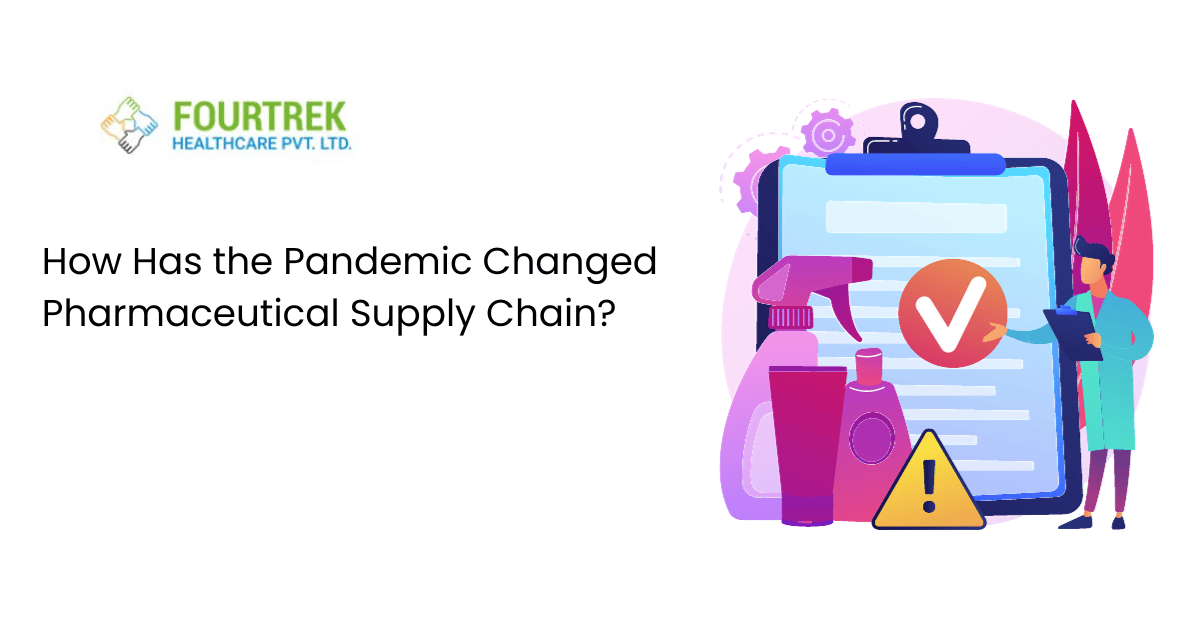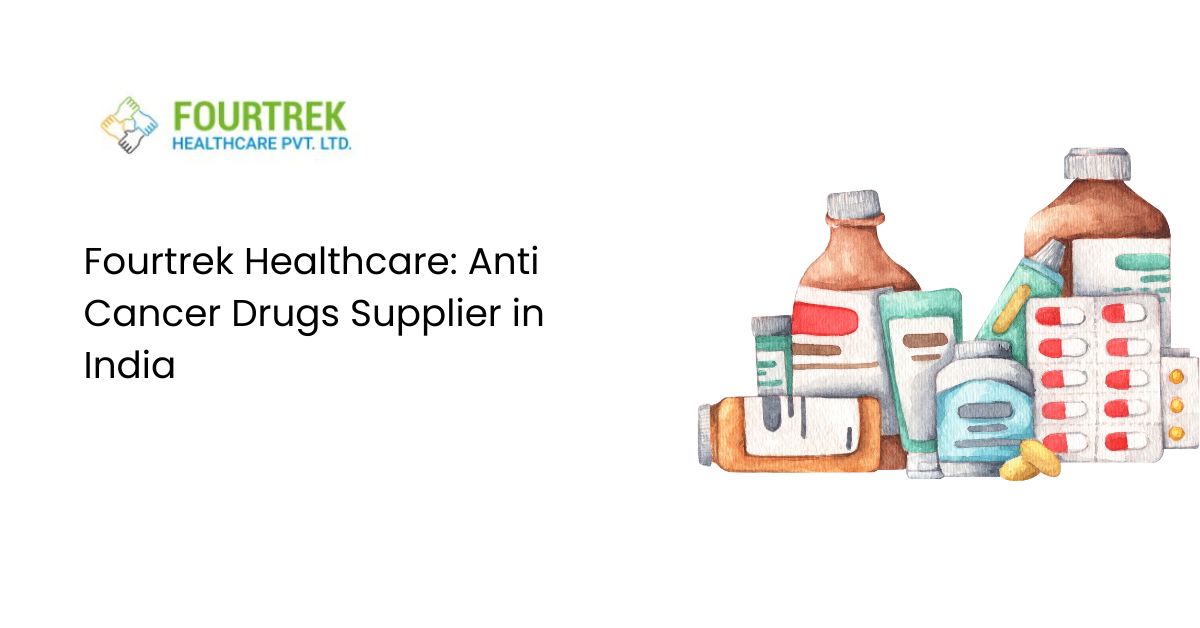In the aftermath of the Coronavirus pandemic, the transportation and logistics sector is swiftly adjusting to the evolving requirements of the pharmaceutical supply chain. Pharmaceutical shipment-specialized freight forwarding companies learned a valuable lesson from the pandemic. Numerous insights have been gained by the industry regarding the development and reinforcement of supply chains that facilitate the efficient distribution of vaccines, medical apparatus, and medications. More than a year has passed since the pandemic first appeared, and many nations continue to struggle to contain the situation.
During these difficult times, pharmaceutical logistics companies have been of particular assistance to hospitals and health centers by delivering oxygen, medications, vaccines, and other health accessories. Nevertheless, the transportation and logistics industry is confronted with a multitude of increasingly formidable obstacles daily. As the Coronavirus pandemic has taught us to always be prepared, it is critical for freight forwarding companies to examine the key trends of the pharmaceutical logistics sector in 2023 in order to surmount the obstacles. This is specifically the subject matter that will be addressed in the current blog post.
The current pharmaceutical supply chain’s requirements
Industry of transportation and logistics
The transportation and logistics sector is striving to innovate and adjust to future pandemic’s requirements on a global scale. We have witnessed how pharmaceutical logistics companies in a number of nations dealt with the scarcity of personal protective equipment, oxygen, ventilators, and medications. This demonstrated the countries’ mutual reliance on one another for an uninterrupted provision of life-saving materials. In the last three years since the beginning of COVID pandemic pharmaceutical logistics firms have become ever more reliant on technology. As an illustration, they are employing AI, machine learning, and a plethora of other cutting-edge technological advancements to increase visibility and insight. The heightened emphasis on the growth of the pharmaceutical manufacturing sector in India will require the establishment of a robust and inventive supply chain.
Creating More Supply Sources
It has been made abundantly apparent through nationwide lockdowns and closed borders that an excessive reliance on a small number of supply sources can be hazardous. We have learned from the pandemic the significance of local supply channels. Additionally, it has underscored the significance of improving the logistics procedure, given that increased global volatility requires a supply chain that is both adaptable and robust. Put simply, pharmaceutical logistics companies must possess the ability to effectively manage unforeseen circumstances. In addition, it must evolve continuously in order to remain relevant in a world that is constantly altering.
As a result, the transportation and logistics sector learned its most important lesson from this experience: develop agile solutions that provide prompt and effective responses to the ever-changing needs of customers. It is expected that they possess the ability to offer customized services and transport critical cargo in the most cost-effective and efficient fashion possible.
You can also read : Tips to Select Best Critical care Medicine Supplier in India
Difficulties within the medicine supply chain
The state of visibility
Cargo visibility is critical in the transportation of medications that have the potential to save lives. After a worldwide pandemic, this visibility assumes an even greater significance.
Following compliance
Ensuring regulatory and legal compliance is of utmost significance for pharmaceutical logistics operators concerning the transportation of medicines and medical products. Consequently, they ought to remain informed of any modifications to the regulations governing the importation and transportation of these goods.
Inbound shipment management
Due to the perilous characteristics of these cargoes, they must be handled with care and transported with diligence throughout the entire voyage. Consequently, it is more crucial than ever to initiate investments in cold chain technologies.
Comprehension and consciousness
Finally, comprehensive knowledge and profound comprehension are critical for ensuring the smooth operation of every facet pertaining to pharmaceutical logistics. This encompasses the entirety of the procedures, commencing with transportation, storage, and efficient distribution.
Emerging developments in pharmaceutical supply chains
Complete visibility
Before March 2020, the significance of visibility had already been recognized by the entire logistics industry. However, the last pandemic has once more underscored its importance in managing the intricacies and difficulties associated with pharmaceutical shipments. Shippers have ultimately recognized the significance of this factor in managing costs and enhancing customer contentment. Indeed, inadequate visibility into the supply chain is the root cause of the majority of disturbances, such as miscommunication or its absence, ineffective inventory management, delays, and errors.
The significance of visibility has been further emphasized ever since the inception of the Coronavirus vaccination campaign. Currently, the primary obstacles confronting vaccine transportation in the majority of nations are associated with inadequate visibility. It has always been recognized by the transportation logistics sector that pharmaceutical logistics and warehousing constitutes a specialized domain characterized by a distinct set of demands. Furthermore, the transportation of vaccines introduces unprecedented intricacies and difficulties. As a consequence, specialists in pharmaceutical logistics are progressively acclimating to advancements that facilitate the expedited distribution process.
Visibility and digitization assist the freight forwarding industry in risk monitoring and receiving real-time updates to guarantee on-time delivery. Moreover, the Covid-19 pandemic has rekindled the emphasis on enhanced collaboration not only among logistics firms but also among all components comprising supply chain management. Investments in new technologies designed to enhance traceability will consequently increase.
Temperature-controlled shipment enhancements
In addition to vaccines, a number of medications must be transported in a strictly regulated temperature environment. For this reason, cold chain logistics service providers are allocating resources towards advancements in distribution, last-mile logistics, warehousing, and handling. Finally, emerging technologies have gained prominence, including blockchain, TMS (transport management systems), IoT (Internet of Things), CRM (customer relationship management) software, and robotics. The worldwide transport of temperature-controlled goods has encountered and continues to encounter significant disruptions. In addition to closure and port congestion, a scarcity of reefer containers contributed to these delays. As a consequence of this, cold chain storage is rapidly emerging as a sector that attracts substantial investment and innovation.
Sustainability
We are also observing initiatives in pharmaceutical logistics that are environmentally favorable. These efforts are being implemented through the utilization of sustainable packaging and environmentally favorable technologies in order to minimize waste. The term “sustainable packaging” refers to the utilization of packaging materials designed to have a reduced ecological footprint. In order to reduce carbon footprints, the freight forwarding industry is presently working to reduce plastic usage. Additionally, clients have developed a heightened sensitivity towards this matter. Consequently, there is a growing inclination towards the adoption of recyclable packaging materials, which offer the dual benefits of cost-effectiveness and sustainability.
Conclusion
It can be stated that the transportation and logistics sector as a whole, and pharmaceutical logistics firms specifically, have been forced to reconsider their operational procedures in light of the pandemic. Companies like Fourtrek Healthcare Pvt Ltd have implemented novel approaches to ensure the efficient distribution of healthcare supplies, particularly to the most remote areas and most vulnerable populations and have adopted digitization as a proactive measure to mitigate risks and anticipate various types of disruptions.







